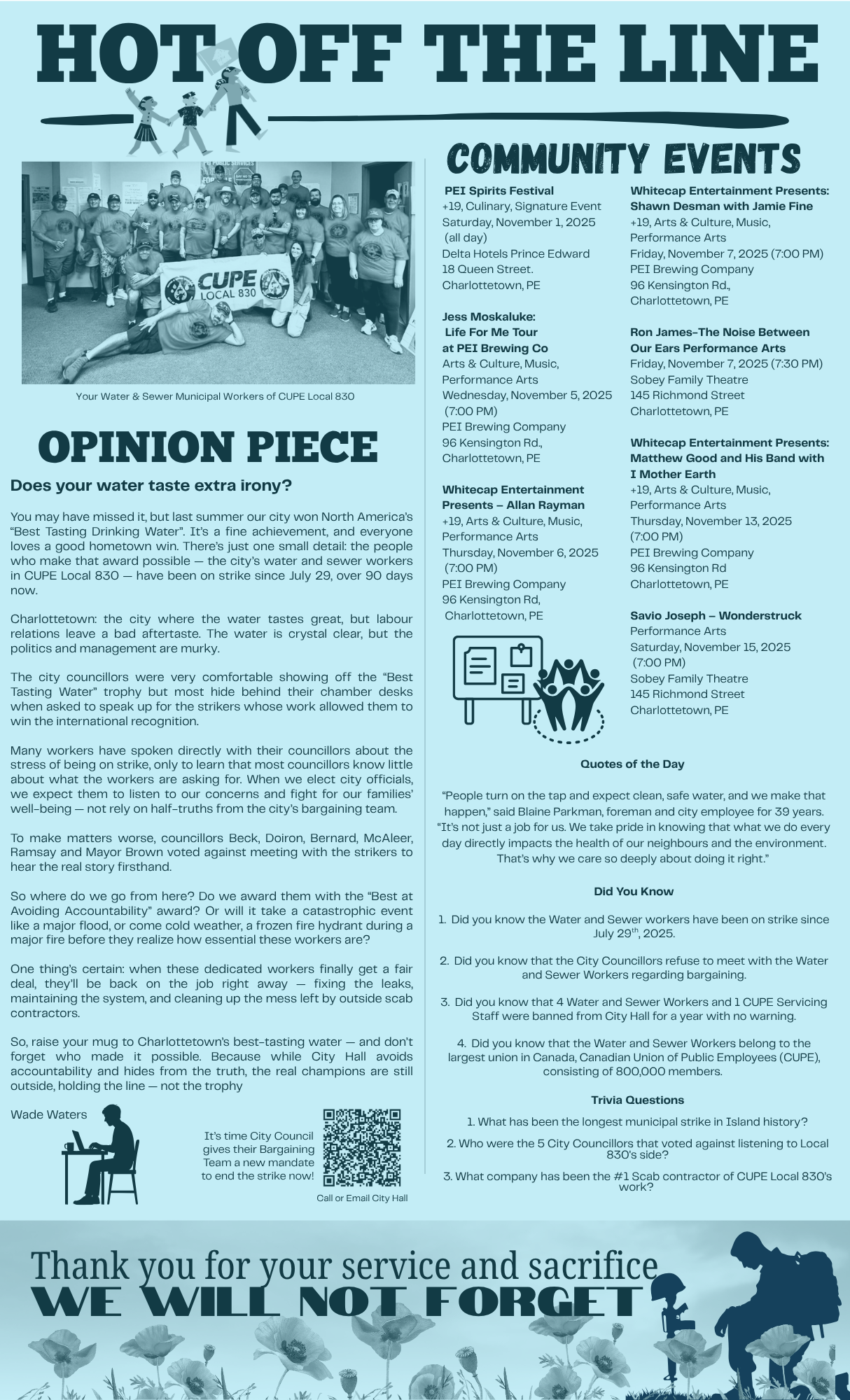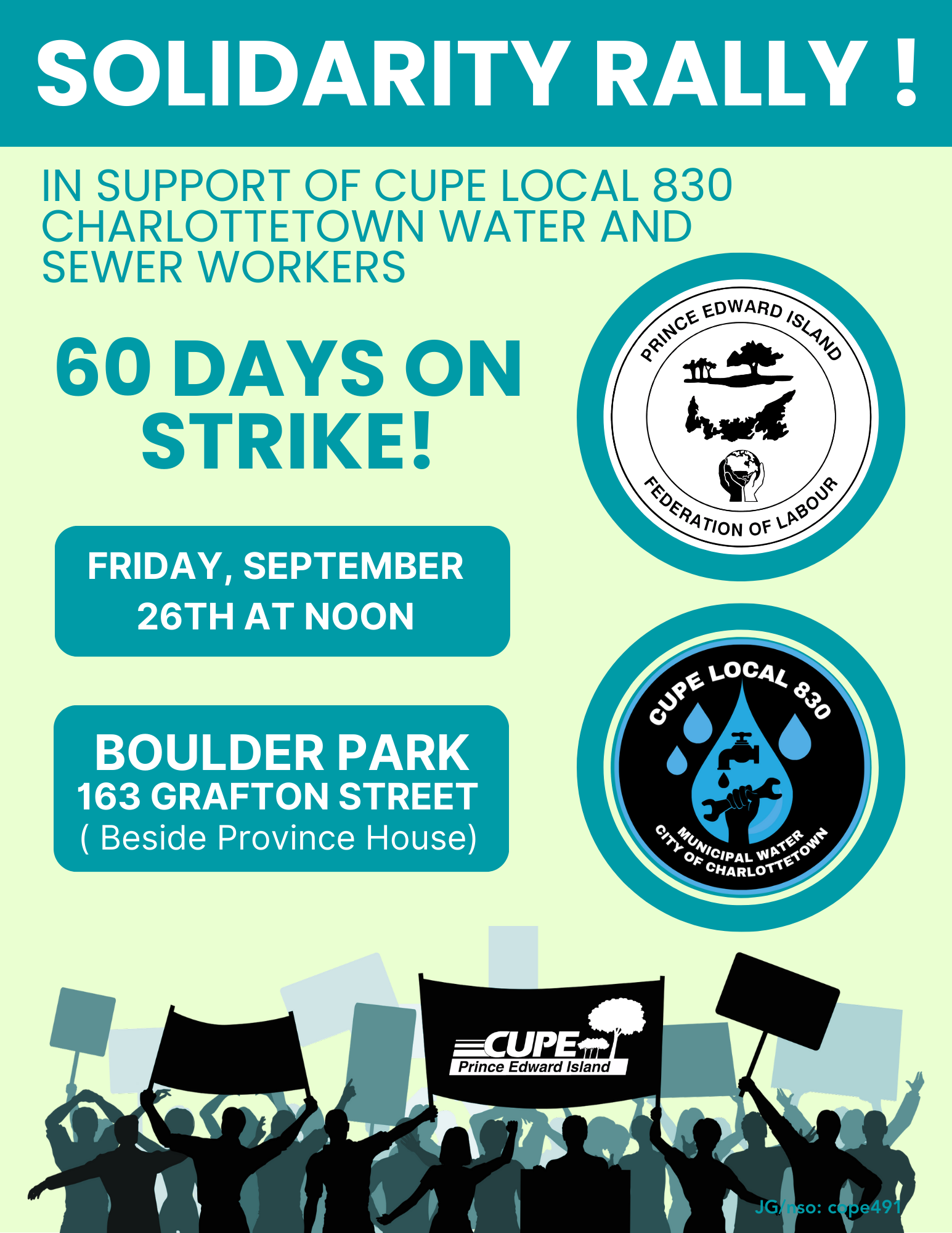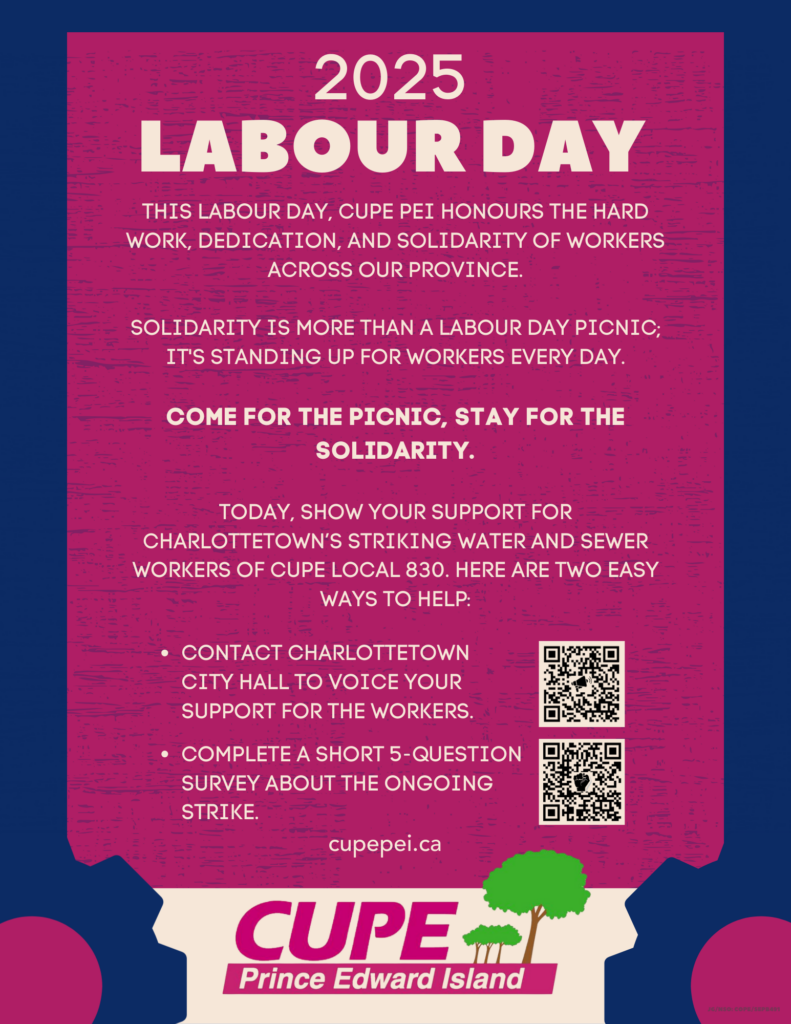On November 12, Charlottetown City Council formally ratified the new collective agreement for CUPE Local 830.
Following 107 days on strike, the first in the Local’s 60-year history, members demonstrated remarkable resilience and unity. Their steadfast commitment secured critical job protections for both current and future workers.
We extend particular recognition to President Robbie Howatt, whose leadership was marked by integrity, transparency, and dedication, as well as to the bargaining team whose determination never wavered. Together, members endured challenging conditions, including extreme weather, and remained resolute until an agreement was reached.
It is regrettable that the process required 107 days of strike action. The dispute arose from concessions proposed by the City that threatened the security of workers. CUPE Local 830 stood firm not only in defense of its members but also in support of the residents of Charlottetown who depend on strong and reliable public services.
The workers of CUPE Local 830 express their sincere gratitude to all who offered support throughout this period: families, friends, residents, local businesses across Prince Edward Island, and allies throughout Atlantic Canada and across the country. The solidarity shown from coast to coast to coast was instrumental in sustaining their efforts.
This outcome demonstrates the strength of collective action. CUPE Local 830 has proven that perseverance, unity, and community support can achieve meaningful victories, even in the most difficult circumstances.
Season’s greetings and solidarity to all. We look forward to a stronger future for workers and public services in Charlottetown and across the Island.










